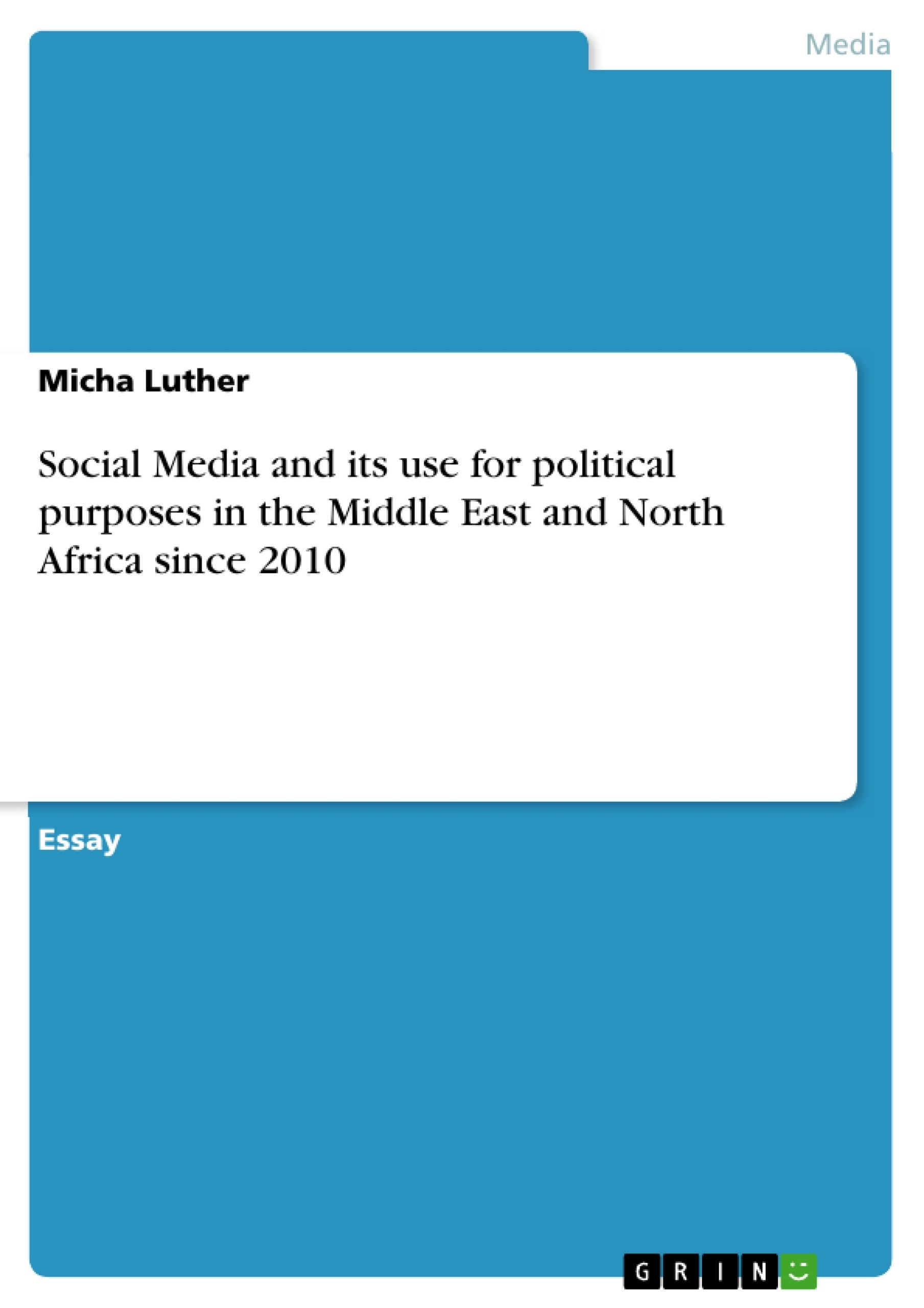This essay will show that social networks have become an indispensable instrument in North Africa and the Middle East for a creative and uncensored political exchange. Since December 2010 revolutionary waves of demonstrations and protests have been taking place in the Middle East and North Africa. Whereas in Tunisia and Egypt protestors have successfully urged the oppressive dictatorships away from power at the time of writing, demonstrations and even war is still taking place in other countries such as Libya, Bahrain, Yemen, Algeria and many others. The self-immolation of Mohamed Bouazizi, a Tunisian street vendor, can be seen as the spark of the riots in North Africa and the Middle East. The reasons for these revolutionary protests, however, are deep and wide-ranging: dictatorship, human rights violations, corruption of governments, economic crisis, poverty, censorship, unemployment and increasing food prizes certainly were among the major reasons for the outburst of protests.
Inhaltsverzeichnis (Table of Contents)
- Increasing online participation
- Censorship and suppression
Zielsetzung und Themenschwerpunkte (Objectives and Key Themes)
This essay explores the role of social media in the Middle East and North Africa, demonstrating how it has become an essential tool for political expression and communication in these regions. The essay focuses on the increasing use of social media platforms, particularly Facebook, by young people in the region, highlighting the changing demographics and mentalities that contribute to this trend.
- The role of social media in political expression and communication in the Middle East and North Africa.
- The impact of censorship and government control on traditional media and the rise of social media as an alternative.
- The changing demographics and mentalities of the younger generation in the region, particularly their embrace of new technologies and online platforms.
- The use of social media to organize protests and disseminate information, particularly in the context of the Arab Spring uprisings.
- The challenges and opportunities presented by social media for political activism, cultural expression, and social change in the Middle East and North Africa.
Zusammenfassung der Kapitel (Chapter Summaries)
- Increasing online participation: This section examines the rising use of social media, particularly Facebook, in the Middle East and North Africa. It highlights the role of demographic changes, the younger generation's embrace of new technologies, and the availability of Arabic language interfaces in driving this trend. The section also explores the correlation between social media participation and the Arab Spring uprisings, demonstrating the increased online activity during the protests.
- Censorship and suppression: This section focuses on the challenges posed by government censorship and control of traditional media in the Middle East and North Africa. It explores how social media has emerged as a crucial platform for political expression and communication, bypassing government restrictions and providing a space for alternative viewpoints. The section highlights examples of government crackdowns on journalists and media outlets, as well as the prevalence of self-censorship due to fear of reprisals.
Schlüsselwörter (Keywords)
This essay explores the intersection of social media, political activism, and cultural expression in the Middle East and North Africa. Key terms and concepts include: social media, Facebook, Arab Spring, censorship, government control, traditional media, political exchange, youth, demographics, and online participation.
Frequently Asked Questions
How did social media influence the Arab Spring?
Social media, particularly Facebook, became an indispensable tool for uncensored political exchange, allowing protesters to organize demonstrations and disseminate information rapidly.
Why did social media become an alternative to traditional media in North Africa?
Due to heavy government censorship and control over traditional media, social networks provided a creative and relatively free space for political expression and alternative viewpoints.
Who was Mohamed Bouazizi?
He was a Tunisian street vendor whose self-immolation acted as the spark for the riots and revolutionary waves across North Africa and the Middle East in December 2010.
What role did demographics play in the rise of online participation?
The younger generation in the Middle East and North Africa embraced new technologies and online platforms, driven by changing mentalities and the availability of Arabic language interfaces.
What were the main reasons for the revolutionary protests?
Major causes included long-standing dictatorships, human rights violations, corruption, economic crises, poverty, unemployment, and increasing food prices.
- Quote paper
- Micha Luther (Author), 2011, Social Media and its use for political purposes in the Middle East and North Africa since 2010, Munich, GRIN Verlag, https://www.grin.com/document/283192



